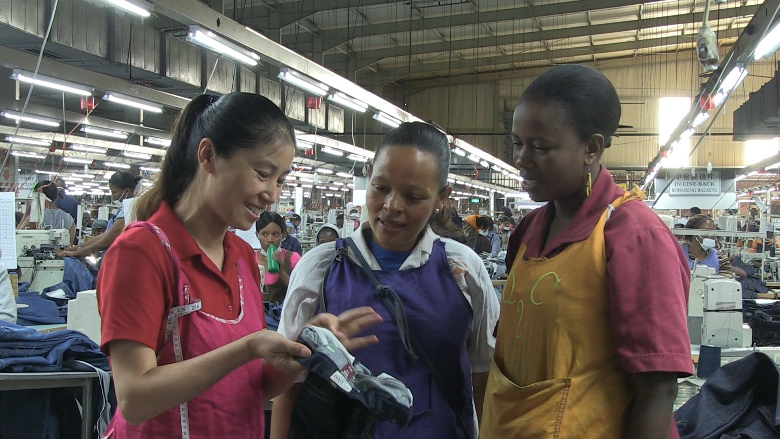WASHINGTON, September 29, 2015—Better conditions for garment workers can boost productivity while empowering the industry’s largely female workforce both inside and outside factory walls, a new World Bank Group study finds.
Interwoven: How the Better Work Program Improves Job and Life Quality in the Apparel Sector, released today, assesses the impact of improvements under the Better Work program—a partnership launched in 2001 by IFC, a member of the World Bank Group (WBG), and the International Labour Organization (ILO).
"The findings in this report are encouraging," WBG Senior Director for Jobs Nigel Twose said. "Here we have more evidence of just how and under what circumstances better working conditions can improve performance, reduce turnover, and contribute to a more robust, more sustainable bottom line."
The garment industry provides a vital first step out of poverty for tens of millions of mostly female workers globally—and an alternative to low-skilled agriculture and service work. But it has long been associated with low wages, long hours, discrimination, abuse, and other conditions that put workers’ health and safety at risk.
"Women globally and particularly in developing and emerging economies need more good jobs. This is vital to tackling persistent gender gaps—a development imperative if we are to achieve our goals of ending extreme poverty and boosting shared growth," WBG Senior Director for Gender Caren Grown said.
"This report highlights important links between better work and better lives for women and men, and better, more inclusive growth."
The Better Work Program trains local monitors to make unannounced inspections and bring factories into compliance with national laws and international standards through auditing, advisory, and training services.
As of 2014, according to Better Work, the program had helped improve working conditions for some 1 million workers in more than 1,000 factories across eight countries—Bangladesh, Cambodia, Haiti, Indonesia, Jordan, Lesotho, Nicaragua, and Vietnam.
Over the last century, many countries have expanded labor-intensive apparel production as a means out of poverty. The sector broadly has a reputation for low-quality jobs with low wages, long hours, high temperatures, excessive noise, poor air quality, unsanitary environments, and verbal and physical abuse. For millions of women in developing countries, however, the garment industry provides unique economic opportunities.
Field research in four countries—Cambodia, Kenya, Lesotho, and Vietnam—found similarities in how workers in each country defined "job quality": To them, a “good job” meant fair pay and benefits, collegial relations with managers and supervisors, and work-life balance, facilitated by reasonable work hours.
Key findings include:
- Improved working conditions can boost factory performance: With better communications, workers and managers are better able to resolve disputes, and staff turnover and absenteeism decrease;
- Relations between workers and managers are a crucial aspect of working conditions and improvement in this area does not incur significant cost;
- Better Work Program participation is associated with significant increases in apparel exports;
- Better Work advisory services helped create Performance Improvement Consultative Committees in factories. Data from Cambodia, Lesotho, and Vietnam suggest these are especially valuable in improving communication between workers and managers;
- Better Work factory employees are applying their new experience and training to their jobs but also elsewhere: Workers from Cambodia, Vietnam, and Lesotho all said improved communication at home and decreased stress at work was boosting satisfaction with their family lives; in Vietnam and Cambodia, men and women alike said household chores and decision-making were now shared equally.
